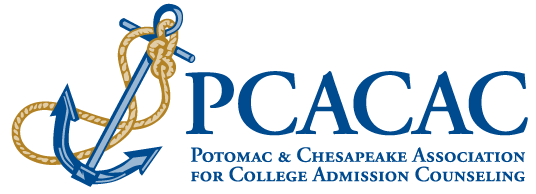Judy Edwards
College and Career Center Specialist
Lake Braddock Secondary School (VA)
How long have you been in admissions/college counseling?
I have been working in college advising for 14 years at Lake Braddock Secondary School. I absolutely love my job! I started working at LBSS 18 years ago as an instructional assistant, after being a military stay at home wife/mom. A year later I started working in the office of School Counseling as the registrar and was very fascinated as to what our Career Center position had to offer.
How did you get started in college counseling?
I applied for the position three times before the job was offered to me. On two occasions applicants with direct experience were selected over me. I never was discouraged I learned from those folks and I guess it paid off, third time was a charm and I was selected. In the last 14 years I have had the pleasure of serving on numerous college advisory boards, mentored four new FCPS Career Center Specialist and have become very involved in PCACAC serving various committees.
The job is never boring and you learn something new every day. The opportunity to travel and meet new people is just one of the many perks of the position. Watching students develop a plan and achieve their goal is one of the most rewarding experiences to witness. I enjoy working with the students helping them explore post-secondary options. I value the relationships I have fostered working the wonderful college admissions folks from all kinds of colleges. You meet some of the most hardest working people in the world and their passion to help students is never ending. I have made some of my most cherished friends through this position.
What’s your favorite admissions /counseling memory?
That’s a tough one to answer. I have had so many wonderful memories of students accomplishments. My very first year I had student who did not get into her first choice school, she was crushed, I tired consoling her and found myself in tears along with her. Four years later I happen to be on a greater Pennsylvania college tour and was visiting the school she was a senior. I ask the admissions folks if it was possible to meet with her and they were able to contact her and she came and had lunch with me. When she arrived she was in a beautiful dark navy suit she looked confident and beaming; she had just presented her Senior thesis for graduation. She said to me, “Do you remember the day I sat in your office, crying about not getting into my first choice school?” I said, “Yes I do”. She smiled and said to me, “ you were right it did work out the way it was supposed to, I cannot imagine having gone to any other school and could not be more happier about my college choice.” I smiled and said, I am so glad you feel this way. She now has her PH.D and teaching at a university on the west coast. I have many more memories and I cherish and keep them close to my heart.
What advice would you give to someone looking to pursue leadership or membership in PCACAC and NACAC?
Do not wait! The resources available are limitless and there is always someone willing to help you along the way or guide you in the right direction. Start small and things will evolve as you feel comfortable. There are some amazing people who are part of these organizations. Great networking opportunities with both these organizations.
If not working in admissions/college counseling. What else could you see yourself pursuing?
I would like to work at a college/university Career Center.
What’s one thing that most people don’t know about you?
I recently have been introduced to country music and I have fallen in love! I have had the pleasure of seeing several country singers in concert and I am hooked: Lady Antebellum, Hunter Hayes, Garth Brook, Trisha Yearwood, Sam Hunt, Little Big Town, Brad Paisley, and I have tickets to see Luke Bryan in June.
What’s a current trend or future issue you’re passionate about right now?
Testing! I think it is wonderful that so many schools are going test optional and taking into consideration a four hour test on a Saturday morning will not measure a student’s potential success in college. It is refreshing to see schools put more value on demonstrated work in the classroom than a test. Don’t get me wrong there is value in both the SAT/ACT but for some students is not an an accurate measure of performance to be admitted to a college.





